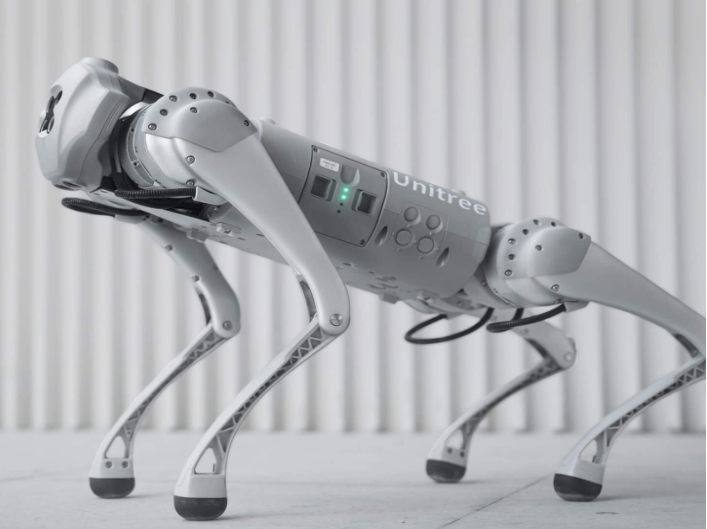
Photo: Unitree
A patent infringement lawsuit against Hangzhou-based robotics company Unitree Robotics has attracted significant attention in China's technology and legal sectors, particularly as the company is in the process of preparing for its initial public offering (IPO). The case was heard by the Hangzhou Intermediate People's Court on August 26.
The plaintiff, Hangzhou Luweimei Daily Chemical Co., Ltd., a small-scale retailer with only two employees as of 2024, has accused Unitree of infringing on an invention patent related to an “electronic dog.” The case is significant, both because of the stark contrast between the two parties and the timing—just weeks after Unitree entered IPO counseling in July.
Unitree Robotics, founded in 2016, is a well-known developer of quadruped and humanoid robots. The company’s products are widely used in education, inspection, and rescue, with customers including top universities and state-owned enterprises. In 2024, it sold over 23,000 quadruped robots, holding nearly 70% of the global market. Its best-selling model, Unitree Go1, has shipped over 50,000 units.
Luweimei Daily Chemical, by contrast, is a little-known micro-enterprise with traditional retail operations. Its registered capital is only RMB 550,000. Despite the lack of connection to robotics, the company is now the owner of a patent that is central to the lawsuit.
The patent in question, titled "An Electronic Dog," was originally filed in 2016 by Zhejiang Jianlin Electronic & Electrical Co., Ltd. (Jianlin Electric), a company controlled by Zhou Jianjun—who also controls Luweimei. The patent describes a quadruped robot equipped with sensors, cameras, and wireless communication capabilities that allow users to remotely monitor their homes and receive intrusion alerts. The system also includes biometric recognition through gas sensors and personalized user responses.
Ownership of the patent was transferred twice in 2025—first in February from Zhejiang Jianlin Electronic & Electrical Co., Ltd. to Hangzhou Lianhao Technology Trading Co., Ltd., and then in July to its current owner, Luweimei. Despite the multiple transfers, the companies involved are closely connected: Jianlin Electric and Luweimei share the same legal representative, Zhou Jianjun, and operate out of adjacent offices in Hangzhou.
Zhou Jianjun has a history of engaging in intellectual property lawsuits. Jianlin Electric has been involved in 49 court cases, acting as plaintiff in more than 90% of them—many involving patent or software copyright disputes. Targets have included over 20 banks such as China Construction Bank.
The case highlights concerns about “patent ambush”—a strategy in which patents are used to pressure companies at sensitive moments, such as IPOs, in hopes of securing out-of-court settlements.
Given the timing and the plaintiff’s background, some experts view this case as a potential example of such a tactic.
Unitree has not disclosed which of its products are alleged to infringe on the patent. The company currently markets seven quadruped robot models, including GO2, GO1, A1, A2, B1, B2, and Aliengo. These range from consumer-level to industrial-grade robots.
The outcome of the trial could have implications for Unitree’s IPO process, investor confidence, and IP strategy. It also serves as a broader case study on IP risk management in China’s fast-evolving technology sector.


